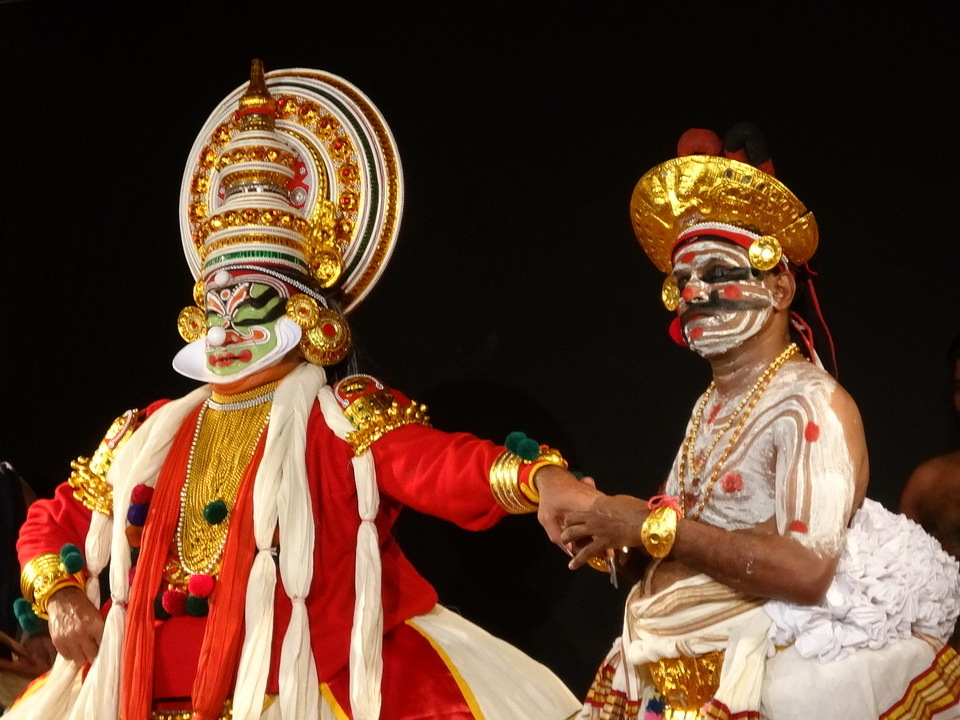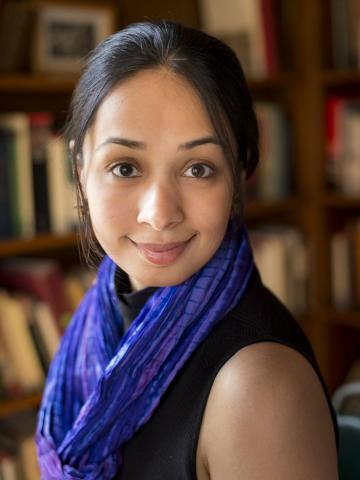HUMS 213, Global Shakespeares

Course Description:
Shakespeare today is a global phenomenon: over five hundred years after his death, the playwright’s legacy continues to flourish with new performances, reworkings, appropriations, and adaptations continuously produced across the world in a range of languages and across various media. Once exported along with the ideologies and practices of empire, Shakespeare’s works have now become an index for the complex histories of colonialism and postcolonialism as well as a crucial site for studying processes of racialization and the universalizing idea of “the human.”
How did Shakespeare become global? Was the cultural imagination of his plays always already global, written at a time with the very notion of the modern world as we know was being shaped? This course explores the political afterlives of “Shakespeare” as a cultural icon and aesthetic touchstone for the Western tradition through a close reading of four plays alongside their adaptations: Hamlet, Othello, King Lear, and Antony and Cleopatra. We look at films, novels, manga comics, memoirs, stand-up comic routines, along with classic stagings of the plays to elucidate the themes that have made Shakespeare global—in particular, questions of race, gender, sexuality, generational conflict, and political intrigue. Authors and directors include Akiro Kurosawa, Vishal Bharadwaj, Janet Suzman, Iqbal Khan, James Baldwin, Sulayman Al-Bassam, Tayeb Salih, Preti Taneja, and Derek Walcott. This is the non-intensive writing version of LITR 340 and is worth 1 credit. It meets with LITR 340. Students may earn credit for LITR 339 (1 credit) or for LITR 340 (1.5 credits) but not for both.
Led by:
|
|
Professor Ayesha RamachandranProfessor Ramachandran is a literary critic and cultural historian of early modern Europe. Her recent work focuses on Europe’s relations with an expanding world—her first book, The Worldmakers (University of Chicago Press, 2015) charts transnational encounters and the early mechanisms of globalization from the late fifteenth to the early eighteenth centuries. She has published articles on a range of topics: on Tasso’s use of Petrarch’s Canzoniere in the Gerusalemma liberata; on the importance of Lucretius in the work of Edmund Spenser; on Montaigne’s engagements with Italy and with cosmographic texts in the Essais; on Mughal miniatures from the court of Jahangir and the challenge of cross-cultural comparative studies; and on fundamentalism in early modernity, among other subjects. |
 |
Professor Lawrence ManleyLawrence Manley’s fields of interest include the poetry, prose, and drama of sixteenth- and seventeenth-century Britain, with emphasis on literature and society, theater history and performance studies, intellectual history, and the classical foundations of the English literary and critical traditions. He is the author of Literature and Culture in Early Modern London (1995) and Convention, 1500-1750 (1980), and the editor of London in the Age of Shakespeare: An Anthology (1986) and The Cambridge Companion to London in English Literature (2011). He has contributed to The Cambridge History of Literary Criticism, The Cambridge History of Early Modern English Literature, the Blackwell Companion to Renaissance Drama, and The Stanford Global Shakespeare Encyclopedia. His book with Sally-Beth MacLean, Lord Strange’s Men and Their Plays (2014), was awarded the Phylliis Goodhart Gordan Prize by the Renaissance Society of America. Current subjects of research include Erasmus and More on war and peace, the manuscript of A tradegie called Oedipus, the great hall screen at Lathom, Lancashire, and Shakespeare’s love duets. |
Testimonials:
This course was previously offered in the Spring of 2021 and 2020. Testimonials are taken from student course evaluations.
- Extremely informative class taught by an insanely talented, caring and dedicated professor. The course material is diverse and the topics in the course are very engaging with different lenses being adopted when looking at original Shakespeare plays and their adaptations. The class forces introspection on the nature of the traditional Western canon and our own relationship with such works. There are many materials to help one succeed in this class and the student’s wellbeing and learning are of utmost priority to Prof.
- This course is extremely strong in its connection between the original text of Shakespeare and the adaptations of his works, and more importantly, asking and answering the questions of why Shakespearean works are so frequently chosen as the basis for adaptation. The class delved heavily into understanding the canonical nature of Shakespeare and provided really interesting analyses of the works with focused passage readings and incredible lectures with lots of detail. The professor was so spot on and her care for students shone through. The themes addressed in the class of race, religion and gender were very topical but not approached in a very trite way. The analysis was nuanced and provided many different angles of interpretation to the larger questions in the class.
